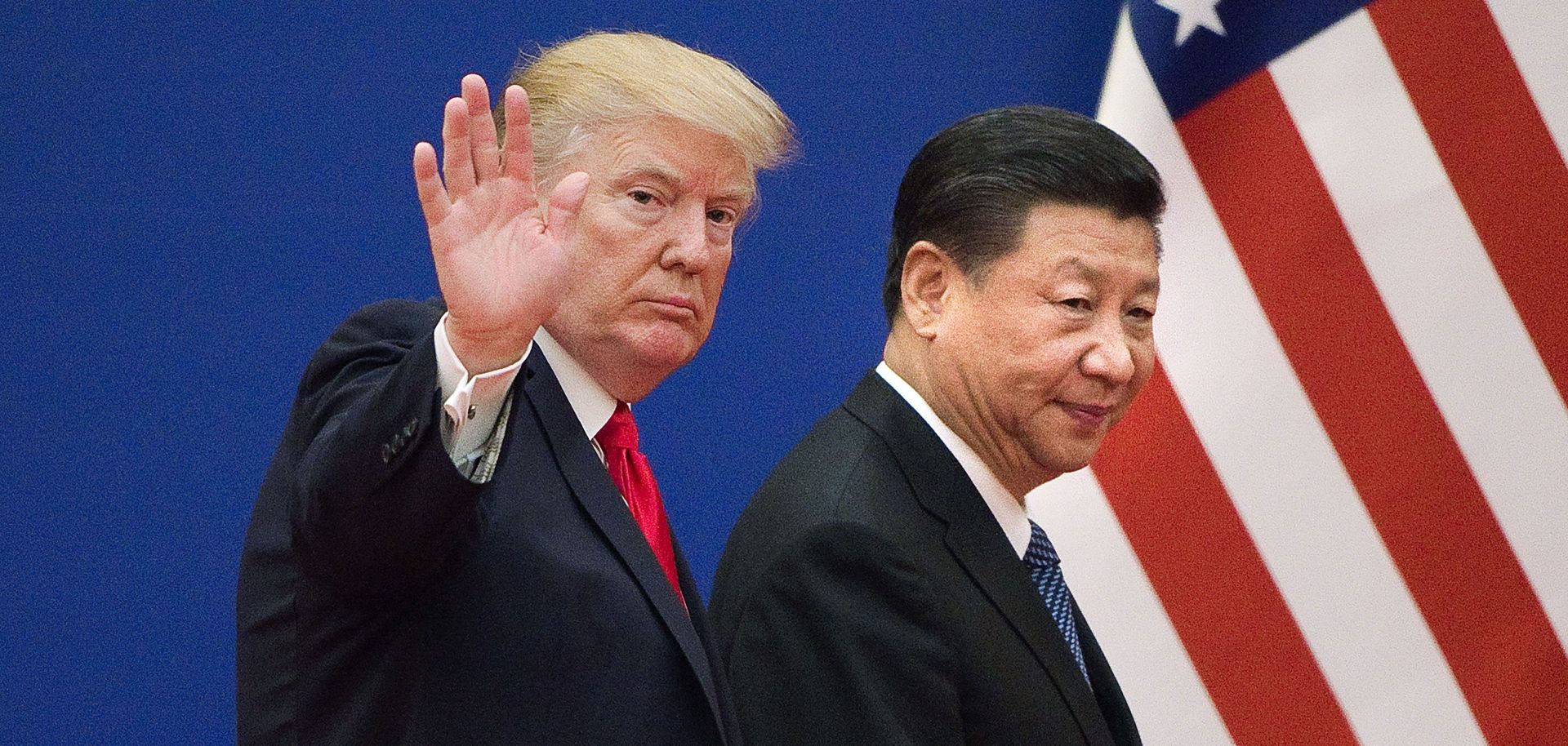ASSESSMENTS
Who Would Lose More in a U.S.-China War of Reciprocity?
Jan 18, 2018 | 00:28 GMT

U.S. President Donald Trump and Chinese President Xi Jinping leave a business leaders event in Beijing on Nov. 9, 2017. A Trump administration plan on trade could close off entire sectors of the U.S. economy to Chinese investment.
(NICOLAS ASFOURI/AFP/Getty Images)
Highlights
- Depending on its implementation, the plan could close off entire sectors of the U.S. economy to Chinese investment.
- It's still possible the Trump administration could ease its stance in response to U.S. pushback. It could also stand firm.
- If the administration holds its course, China will undoubtedly push back. The question is how.
Subscribe Now
SubscribeAlready have an account?
